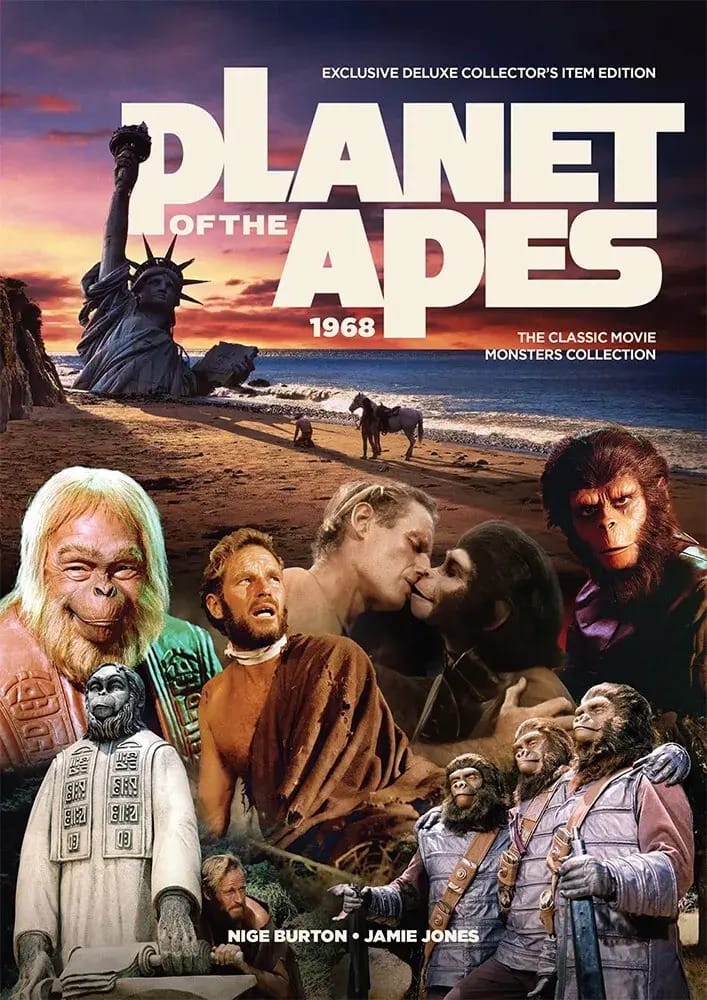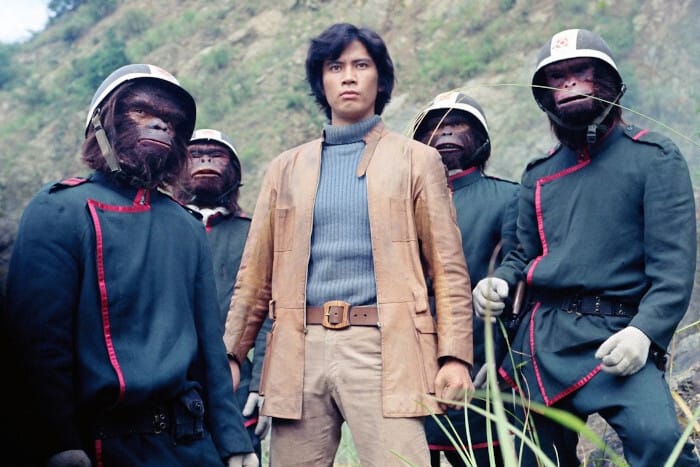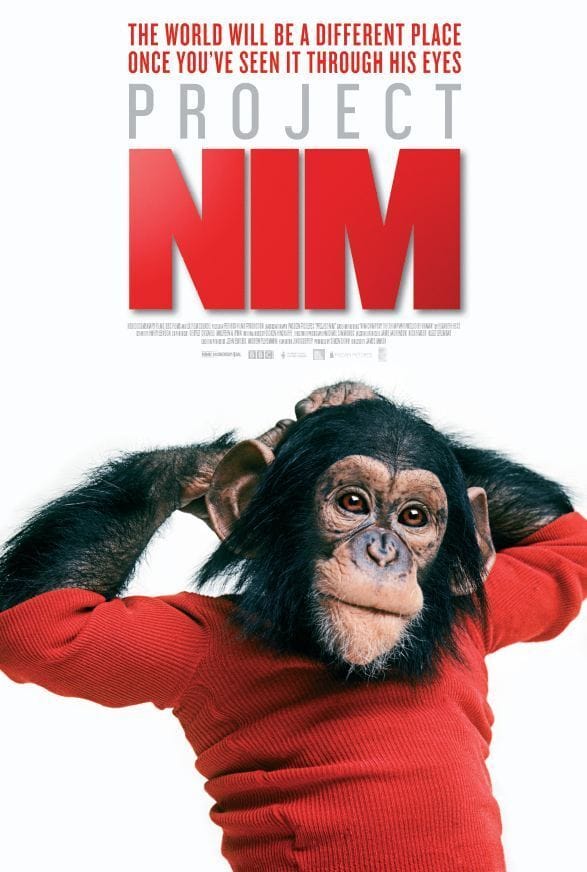- IF: Imagination and Fantasy
- Posts
- Planet of the Apes: Unpacking Its Cinematic Legacy
Planet of the Apes: Unpacking Its Cinematic Legacy
The Sci-Fi Allegory That Never Gets Old

Today, we’re going on an exploration of one of sci-fi's most transformative pieces: the Planet of the Apes franchise. Join Damion and Mia as they unpack its profound legacy.
Planet of the Apes: A Revolutionary Vision
The journey begins with the original 1968 masterpiece, based on Pierre Boulle's satirical novel, which envisioned a world where apes are the dominant species and humans are subjugated. This landmark film not only spurred a multi-installment franchise but also encouraged deep reflections on societal structures and the nature of humanity itself.

Planet of the Apes
Despite some sequels and remakes struggling critically, the revival brought by 2011’s Rise of the Planet of the Apes marked a triumphant return, further exploring these timeless themes.
Echoes Across Cinema
"Planet of the Apes" wasn’t just an isolated narrative; it served as a launchpad for a multitude of films exploring similar ideas, albeit in varying tones.
- Imitation and Innovation: "Time of the Apes" (1987) serves as a notorious yet unexpected tribute, staying closer in some ways to the novel’s narrative. Meanwhile, 1995’s "Congo" and 1990’s "Shakma" take a different, more adventurous path, proving the influence’s reach into diverse genres.

Time of the Apes
- Philosophical Mirrors: Films such as "Silent Running" (1972) and "The Omega Man" (1971) delve into humanity’s potential downfalls from ecological and societal angles, reminiscent of Apes' warnings.

The Omega Man
- Modern Allegories: The connection to "District 9" (2009) shines through its powerful allegorical narrative, attacking themes of racism and social injustice, much like the social commentaries underlying the Apes franchise.

District 9
Reflections in Reality
We'll shift gears to discuss "Project Nim" (2011), a documentary that poignantly documents real-life experiments exploring language acquisition in a chimp named Nim, mirroring the fictional explorations depicted in "Rise of the Planet of the Apes". This non-fiction narrative adds a sobering layer to the conversation about humanity’s ethical considerations with other intelligent species.

Project Nim
The Cinematic Conversation
This deep dive shows that "Planet of the Apes" has sparked an interwoven cultural dialogue that spans tales of action, philosophy, and gut-wrenching reality. Beyond entertainment, it pushes us to ponder the nature of power, intelligence, and humanity’s future both on screen and beyond.
Reflecting on our cinematic fascination with these narratives prompts us to ask: What do these stories say about our anxieties about progress, our ethical responsibilities, and our relationship with the natural world?
The discussion starts with films about intelligent primates, but ultimately circles back to ourselves, asking us to reconsider our place in the grander scheme of things. So as we continue to explore both the cinematic and the real-world 'Planet of the Apes', we are invited to grapple with these enduring questions.